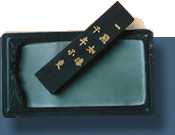|
|
 |
|
|
© Maria BugrovaTsungli YamenThe abstracts from report "The role of Great Britain in the "opening" process of China by the West in the 2nd part of the XIX century" addressed to the International Congress of Asian and North African Studies (ICANAS-XXXVII), 2004 For the centuries western powers unsuccessfully tried to establish diplomatic relations with China. The farness of this state and extreme expensiveness of organization of expeditions to China brought to the fact that they were seldom and non-effective. One of the reasons of it was foreign representatives’ aversion of Chinese ceremonies and rituals. For example, English diplomatic mission of D.Maccartney dispatched to China in 1793. Emperor of China refused to have equal relations with western power. Other English mission of Amhesrst (1818) was without any positive results. The most of modern scientists supposed that China’s attitude to the West expressed in “self-strengthening policy” (tzu-ch’iang). The key idea of this position was to “control barbarians with barbarians”. The principle of Li Hungchang and other progressive Chinese politicians was connected with “government supervision, merchant operation” (guangtu shangpan), with an aim to attract capitals of Chinese businessmen for organization its own enterprise. The government's control was a general plan and examined its merits and demerits, while the merchant directors (shang-tu) were allowed to set up their own regulations so that the merchants were gladly submitted to control. This policy was useful to capitalistic powers and didn’t contradict, but conform to its foreign policy course in the Far East. It’s necessary to take into consideration the fact that Qing Government didn’t have reasons to “open” itself and to transform itself for the West. It tried to be isolated as much as possible from every foreign element. That’s why one of the main Great Britain’s tasks was transformation of Chinese society by the “Chinese hands”. Tsungli Yamen was established on 20th of January 1861 became the special kind of Chinese Ministry of Foreign Affairs at the head of Prince Gong. It consisted of 3 officials. About 1876 its staff increased till 11 persons. English journalist V.Chirol considered an activity of Tsungli Yamen: “the number of its members was gradually raised to 10, which has now come to be regarded as the normal strength of the Board … which transacts its business daily… in the presence of the Emperor himself. … When an interview takes place with a foreign Minister scarcely even less than 3 are present… The difficulty of dealing with such an unwieldy body is obvious. The chief anxiety of every member is to shirk responsibility, and though all ready enough to talk, none will, if possible, take action”. Tsungli Yamen consisted of five departments. Each department concerned itself with diplomatic activity with England, France, Russia (Japan), USA (Prussia, Denmark, Belgium, Peru, Portugal, Italy, Sweden, Norway) and Maritime departments whose duties were to build naval fleet and to solve problems of navigation. Tsungli Yamen was established but its character was formal because the mentioned departments had only 10 members in the 70-s. Let’s imagine foreign diplomats in Peking who looked for audience to Chinese emperor. The difficulties rose from the very outset: Where to live? How to guarantee their security in Peking? How to communicate with their own government? How to meet with Chinese Emperor? There were not special diplomatic residences. Foreign part of Peking was separated by high wall, the gates of which were closed before the sunset. There wasn’t a telegraph, that’s why the foreign representatives were in absolute isolation. |

|
© Copyright Bumali Project, 2007
All rights reserved bumali2000@yahoo.ca Last update: 2020.12.05 |